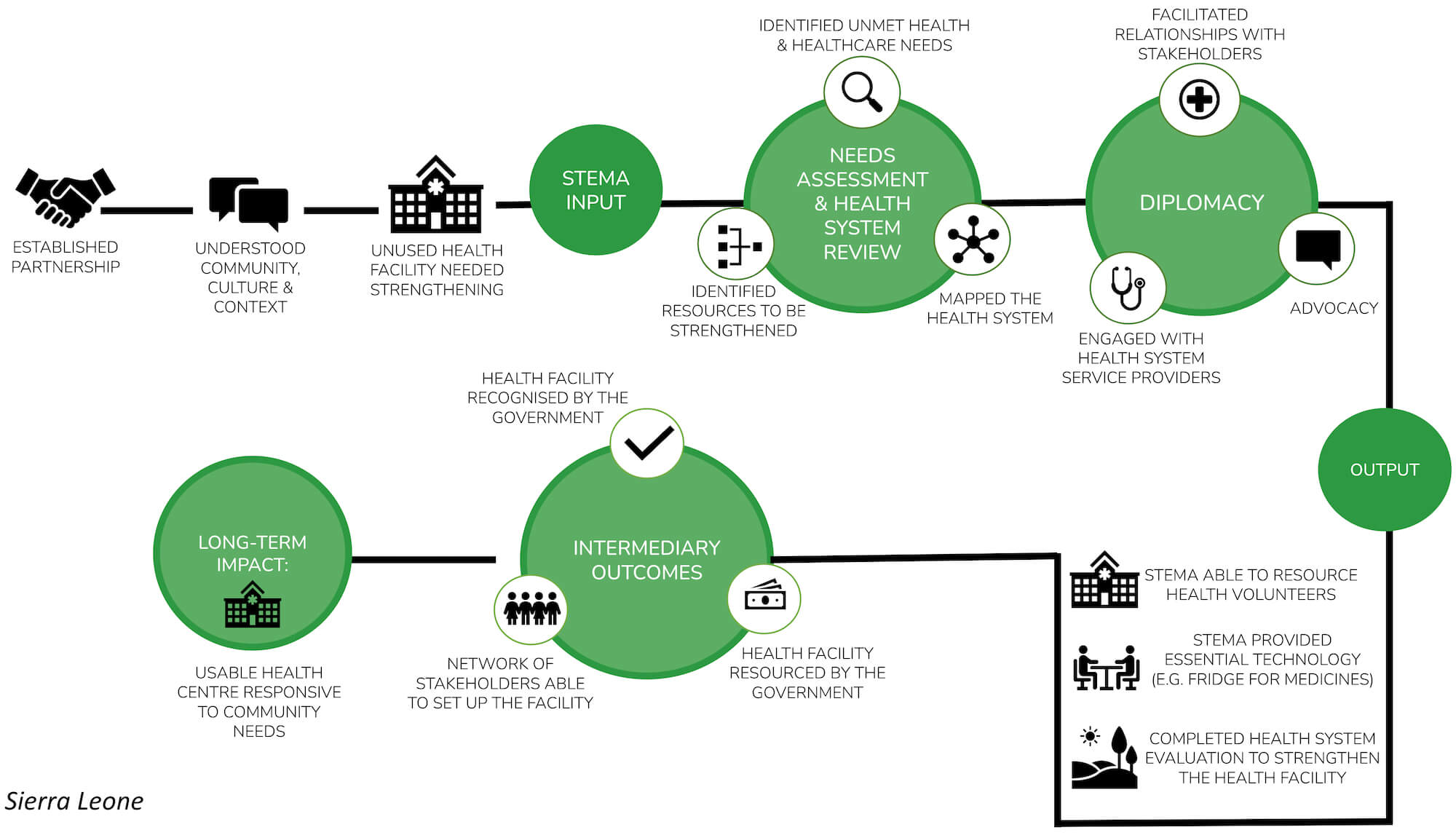Sierra Leone: understanding community, culture and context to innovate access to healthcare
Remote communities in Sierra Leone are marginalised in terms of poverty, isolation and inaccessible healthcare services. As a result, many communities commonly suffer and die from treatable conditions. Unfortunately, marginalisation and geographic remoteness causes these communities to fall outside of the formal healthcare system. They must rely solely on their own informal health system and decades of knowledge of traditional medicine to treat illness. To understand health systems from the perspective of these communities, STEMA focused on the remote Yiben community. Prior to STEMA’s work, a community health centre brought formal health services closer to the community, but was still not readily accessible to the people of the Yiben area.
STEMA developed a community-centred approach, consisting of participatory and exploratory methods, to conduct a needs assessment and health systems review for the Yiben community. Such design identified the community's health beliefs and local healthcare structure. Most importantly, these findings could then be framed within the larger structure of the national health system to plan how to extend service delivery in a way responsive to communities' values. Furthermore, this highlighted the value of integrating traditional and communities’ systems of health with the formal health system in the path to achieving health equity.
Identifying “gaps” within healthcare – in the formal or traditional health system - was aided by a series of participatory mixed-methods data collection methods. In addition, STEMA undertook various diplomacy activities with health system service providers to ensure the community health system could be approved as a functioning, formal health service provider. As an output, STEMA was able to be part of a network advocating for the health facility to be recognised and resourced by the government. Once the community identified gaps in formal health service delivery, STEMA was able to provide further resources including essential technology, cold storage and training for health volunteers.
Overall, the work undertaken by STEMA provided the foundation to a larger health-system delivery implementation plan, and the community health centre now provides healthcare access to the Yiben community. The use of a bottom-up research approach ensured the preservation of community traditions and the long-term sustainable impact of the community health centre. This work contributes to growing global discourse highlighting innovation needs to emerge from communities to provide a functional and efficient basis for health service provision to succeed.


